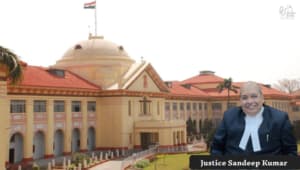The Chhattisgarh High Court has ruled that tax authorities cannot invoke Section 143(1)(a) of the Income Tax Act, 1961 to disallow claims when the related legal issue is still pending before the Supreme Court. This decision came in the case of Raj Kumar Bothra, where the Assessing Officer had disallowed a deduction related to delayed deposits of employees’ EPF and ESI contributions.
Background of the Case
Raj Kumar Bothra filed his income return for the Assessment Year 2020–21, reporting a total income of ₹3.76 crore and paid taxes amounting to ₹1.44 crore. The Central Processing Centre (CPC) processed the return and issued an intimation under Section 143(1)(a), disallowing ₹28.21 lakh claimed under Section 36(1)(va) for delayed deposit of employee contributions towards EPF and ESI.
Aggrieved, the assessee challenged the order before the Commissioner of Income Tax (Appeals), which was later dismissed. The matter escalated to the Income Tax Appellate Tribunal (ITAT), which also upheld the disallowance. The case then reached the Chhattisgarh High Court.
The Legal Conflict
The central issue was whether the AO could use Section 143(1)(a) to make adjustments when the question of law—whether delayed EPF/ESI deposits could be allowed—was still undecided and pending before the Supreme Court in Checkmate Services Pvt. Ltd. v. CIT.
Read Also:- Chhattisgarh Liquor Scam: Supreme Court Grants Bail to Anwar Dhebar in PMLA Case Citing Delay in Trial
"…the Assessing Officer should not have resorted to Section 143(1)(a)… as on the date of issuance, the subject issue was highly debatable…"
— Chhattisgarh High Court Bench
The court highlighted that at the time the intimation was issued (16.12.2021), the Supreme Court had not yet delivered its ruling in the Checkmate Services case, which eventually came on 12.10.2022. The judgment settled that employees’ contributions must be deposited within due dates under the relevant welfare laws.
Court's Observation
The High Court underscored that Section 143(1)(a) allows only straightforward adjustments based on errors apparent from the return itself. Complex or debatable matters must be examined under Section 143(3), which involves scrutiny. The Court referred to past Supreme Court rulings which clarify that prima facie adjustments cannot be applied to issues involving legal debate.
Read Also:- Chhattisgarh High Court Upholds Ban on Moolvasi Bachao Manch, Says Advisory Board Review Pending
“Assessing Officer had no authority to adjudicate upon any debatable issues under Section 143(1)(a).”
— Supreme Court in Rajesh Jhaveri Stock Brokers Pvt. Ltd.
The court noted that the assessee’s audit report had disclosed the delayed deposits but did not treat them as disallowable, indicating the issue was not settled. As a result, the AO’s action was held to be legally flawed.
The High Court set aside all previous orders, including those passed by the AO, CIT(A), and ITAT, and allowed the appeal in favor of the assessee.
Case Title: Raj Kumar Bothra v. Deputy Commissioner Of Income Tax
Case Number: TAXC No. 56 of 2025















